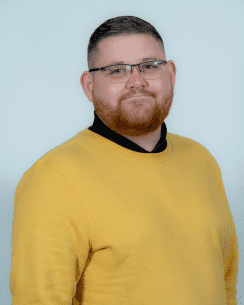How communities can help people rehabilitate

James Murphy, a learning development and innovation lead at Community Justice Scotland, talks about meeting Father Greg Boyle, the founder and director of Homeboy Industries, the world’s largest gang intervention and rehabilitation programme
When I was given the opportunity to attend an evening with Father Greg Boyle from Homeboy Industries I jumped at the chance having previously heard him speak at a Community Justice Scotland online event (screengrab below).

The evening was organised at Ulster University by The Turnaround Project – an organisation helping people connected to the justice system turn around their futures with support from the wider community.
Father Greg, an American Catholic priest, has recently received the Presidential Medal of Freedom in the United States and as the founder of the world’s largest gang intervention programme, there are few others whose words hold the weight of his in the context of preventing reoffending. However equally as impressive and as important were the testimonies of fellow speakers, Louis and Fabian, former beneficiaries and employees of Homeboy Industries.
For interventions to be effective they must be evidence-based and they must be endorsed and believed in by the people who deliver them and the people who receive them. Louis and Fabian both spoke passionately about the importance of getting the right people around the table when determining what works. They were clear that involving people who are on the ground delivering services and people who are accessing services is a crucial part of the process.
Father Greg, Louis and Fabian spoke at length about the work delivered by Homeboy industries with a focus on the healing which has to take place in someone’s rehabilitation journey. Father Greg explained: “Healing is the primary goal. After that you can do all the other things.” I think this is a really important point to remember.
Sometimes in justice we can view things such as employment or education as magic wands that will solve everything. In some cases it works out but more often than not there are missing pieces. People often need support to look inward at their own underlying needs which have to be addressed before they can commit to big changes like work and education that are so often viewed as the hallmarks of rehabilitation.
This is the healing which they speak about at Homeboy Industries. Another thing which really struck a chord with me was Northern Ireland’s Interim Economy Minister Deirdre Hargey’s observation. She said: “A rising tide doesn’t lift all boats. If your boat has a hole in it your boat will remain under water.” We must enable people to mend their boats before we can expect them to be able to rise.
For me, the overarching principle that guides the work of Homeboy Industries is that people in the justice system are just that – people. Father Greg shared his simple concept of ‘radical kinship’ which is that shared community life can act as an extension of the family. It can allow people who have lived without the compassionate support of family to experience real kinship and real life-changing kindness from others in their community. If we buy into the ideals of radical kinship and the message of nobody standing outside ‘the circle’ it becomes far easier to help people towards better outcomes. As Father Greg says: “It’s no longer us and them, only us.” When that becomes the case we see we are not providing a service to people in the margins but we see ourselves in them. If we do not see our own wounds we cannot help the wounded.
What Father Greg describes as kinship, is what I believe should be our vision for ‘community’ (justice) in Scotland. Believing in people, empathising with their struggles, seeing past the labelling/ demonisation of people who have committed offences shouldn’t feel like radical kinship but it is. Today more than ever, people feel inclined to dismiss or even destroy the people they see as different from them. If we continue on the path of otherising people who come into conflict with the law, how can we truly achieve the goals of rehabilitation and reintegration which are the cornerstones of our justice system?
For me, radical kinship in Scotland should apply to us all but it’s most vital for people serving custodial sentences who will be returning to the community and those who are serving community-based sentences. Bringing people back into the community after a custodial sentence involves essential support work. But where it’s safe we should be allowing people to stay connected to their support networks by serving life-changing sentences in their communities where we can address underlying needs rather than sending them to prison in the first place.
